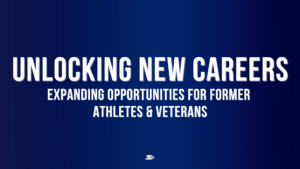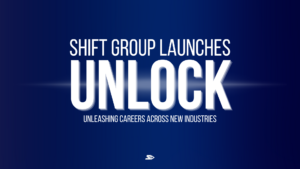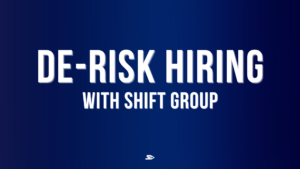October 27, 2022
Bhupendra Rathod
This week on the pod, we have Colin McDonald. Colin played thirteen years of pro hockey before becoming a salesman. Spending thirteen years earning a paycheck by shooting pucks and getting smashed into the boards is rare. Anyone who works hard enough to play professional sports for thirteen years has earned the right to identify as a pro athlete. It gets into your bones, it becomes who you are. A career that long makes reinventing yourself painful, that’s why Colin’s story is so impressive. He’s been selling cybersecurity software for Recorded Future for almost two years now.
Technical Difficulties
We spent a good chunk of time talking about Colin’s transition back into civilian life. In my head, I was imagining that there must have been many dark nights of the soul and an identity crisis to wrestle with. As you’ll see and hear from the show, Colin has a really stoic way of carrying himself. It didn’t seem like he got sucked into the muck of feeling lost.
“What’s been the hardest part of the transition for you?”
Drinking from the fire hose. Trying to learn as much as I can about our products.
And…
All of the kids who I started with were able to hit the ground running. They knew how to build presentations and use google sheets. I took a thirteen-year break from all of that stuff. It’s been like learning how to walk again.
Understanding new technology and how to show it off to prospective customers can be daunting for anyone. I hadn’t considered that taking a break from using basic tools like PowerPoint, email, and google drive could be equally as hard. Colin’s answers sparked a couple of thoughts.
Consideration of what you’ll be selling is a critical piece of being successful in sales. Are you a technical person? Were you the type of kid who took computers apart to analyze their guts? Ever tried to learn a programming language for fun?
If you were thinking, “hell no”, to those questions, you’ll want to pay attention to where you end up. Not every company sells super technical software. Some tools are really straightforward. A company like Scratchpad comes to mind. They sell software that sits in front of Salesforce to make it easier and faster to get your data into SFDC. Recorded Future sells cyber security software making it imperative that you learn how to speak about endpoints and threats, and be able to get into the weeds with IT people. Neither path is better, they are just different. Make sure you know what you are getting into. A super technical sale isn’t a bad place to be, but maybe also ask about what kind of support you’ll have during the selling process. Do you have direct access to your own sales engineer? Will you be mostly on your own?
Who are you? Why you?
What about lack of specific experience? How did you overcome that?
Colin gave a masterclass on the episode of how to use your experience playing sports to overcome the “lack of experience” objection that you’ll be sure to face during the hiring process.
They wanna know if they can rely on you to go out and hunt new businesses. They want to know that you aren’t going to hide.
Athletes DO have experience. Athletes operate under much greater pressure than a quarterly quota, especially if you are in the pros. A string of bad games could limit your ice time or even put you in a suit and tie watching from the stands. A weak season could be the difference between signing a contract to continue playing or packing your bags and looking for other ways to make a living. Can a 20-year-old college student say they’ve felt that pressure?
What about all of the training time? Elite athletes are required to always be looking for little ways to get better. A career in athletics is a long-term commitment to achieving specific goals and milestones along the way. “Do you think that kind of dedication and approach is valuable to your company?”
On Fast Promotion
Colin shared some advice towards the end of the episode for BDRs who want to get into a closing role as fast as possible. You’ve got to find your own motivation for wanting to be promoted quickly. Colin’s got a family to support. His advice?
Be visible. Most companies have a pool of BDRs to select from when an AE role opens up. So, does the AE manager know who you are? Do the HR people know who you are?
How do you be visible?
The same way you did it on the court or on the ice. Be the first one in the office and the last one to leave. Put in the work. When you’ve got questions about different aspects of the business, walk over and schedule a few minutes with someone in marketing. Schedule some time with people in different functions. Be interested. Ask thoughtful questions. Most importantly, get yourself to the top of the leaderboard in the metrics that they care about.


